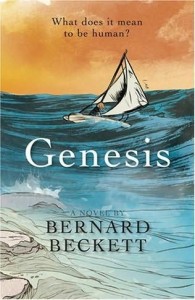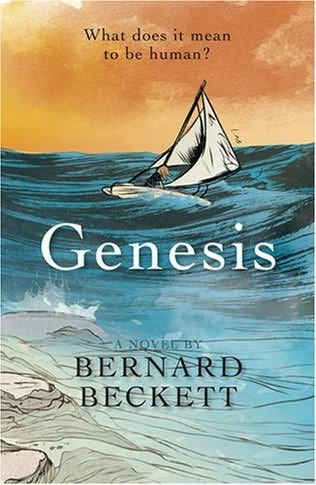Haris Durrani ’11
Opinions Editor
 In “Genesis,” Bernard Beckett’s style adopts the dialogue and logic driven prose of Isaac Asimov and the evolutionary themes of Arthur C. Clarke, then builds on his literary predecessors, bringing their style and ideas to a new—perhaps, even more innovative—level. He pushes the limits of modern science fiction towards the fresh, original thinking which has suited the genre so well in the past.
In “Genesis,” Bernard Beckett’s style adopts the dialogue and logic driven prose of Isaac Asimov and the evolutionary themes of Arthur C. Clarke, then builds on his literary predecessors, bringing their style and ideas to a new—perhaps, even more innovative—level. He pushes the limits of modern science fiction towards the fresh, original thinking which has suited the genre so well in the past.
As Clarke, Asimov, and others improved the genre of their times, Beckett does the same for the modern era.
“Genesis” returns to the inherent link between science fiction and philosophy—the manner in which science fiction allows creative writers like Beckett to produce works of limitless imagination. While short—only 150 pages—his novel’s ideas linger much longer in the mind.
The novel starts out like a typical science fiction story—equipped with an apocalypse, an island in the middle of the ocean, and an oppressive, Orwellian kind of government.
It’s set in a rough model of Plato’s “Republic,” and starts out as Anaximander begins a rigorous verbal exam in order to enter the “Academy”—said to be the most esteemed facility of knowledge ever to exist. Anaximander discusses her field of study—the life and times of the revolutionary Adam Forde—and as she does so, the reader learns that in the wake of global catastrophe, sentient life on Earth has been reduced to a small island, surrounded by a brutal set of security systems which destroy any moving object in the waters past the protective walls—preventing the entrance of outside survivors carrying fatal diseases.
The society within the island is controlled, and the government has subdued the residents by creating a widespread fear of the plagues beyond the island walls.
Those are “been there, done that” ideas in the genre of science fiction, but Beckett’s use of stereotypical sci-fi elements is not at all the heart of his story, but the foundation from which he creates a more elaborate—and much more though-provoking—science fiction storyline.
Adam Forde, we soon learn, was a guard at the island walls who allowed a female survivor into the island—breaking the law and threatening the survival of the human race—because of his sympathy for the girl. In doing so, he defies the logic-driven ideals of the Republic.
As punishment, Forde is locked into a unique situation—jailed inside a room, as one would expect, but with an orangutan-shaped robot, Art. Its intelligence is at the cutting edge of artificial intelligence, in that it does not act by following a constant program written by its creators, but by programming itself, changing as it observes and is challenged by its surroundings.
Forde is a new playmate for this learning, self-programming machine, and as time progresses, Anaximander tells her interviewers of the tension between the two. Forde believes in the concept of the soul and human compassion, claiming that Art has no sentience—while the robot itself labels emotion as irrational and defines sentience by logic alone, delivering compelling arguments for his case.
And, although “Genesis” remains a purely science fiction story, it also appeals to a wide audience. The teenager will relate to Anaximander’s stress during the Academy’s verbal exam, and the narrative will draw the adults to Adam Forde as Anaximander recounts the man’s influence on history.
More than any other part of the novel, the very material that makes Beckett’s ideas so inventive is revealed in the story’s spoilers—particularly within the last ten pages. While much of the first half of “Genesis” is stereotypical science fiction, the story’s final twist turns Beckett’s novel into a brilliant piece of work, short as it is.
[openbook booknumber=”9780547225494″]
Have you read this novel? Share your opinions here!














































Sundance • Nov 13, 2011 at 7:32 pm
Just what the doctor orreded, thankity you!